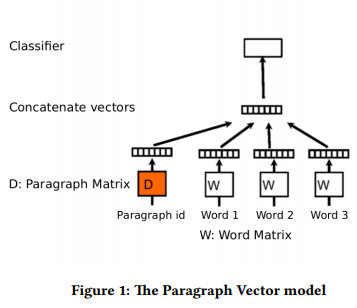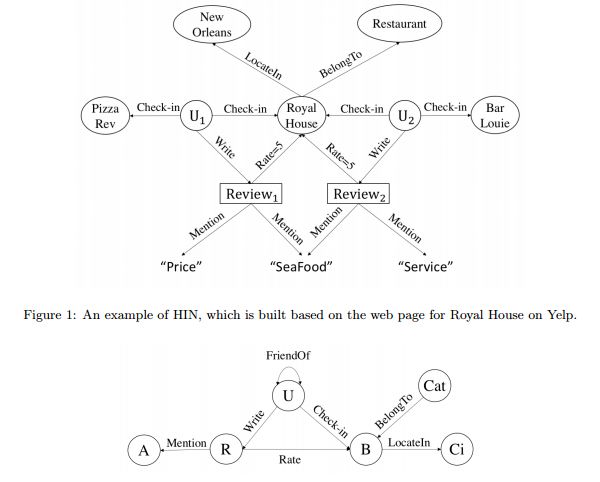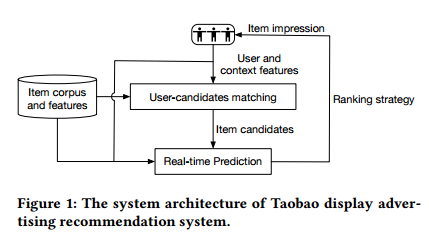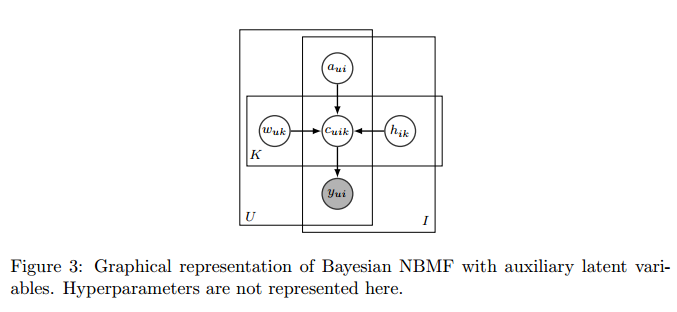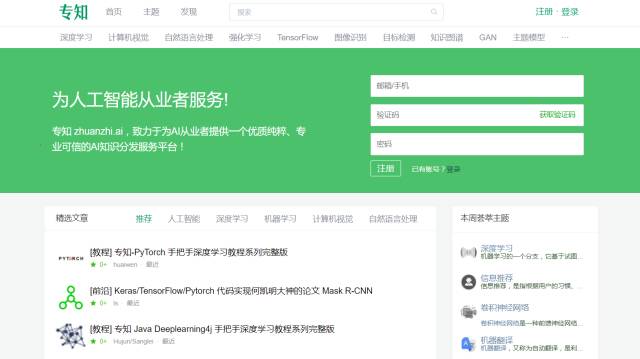【论文推荐】最新5篇推荐系统相关论文—文档向量矩阵分解、异构网络融合、树结构深度模型、深度强化学习、负二项矩阵分解
【导读】专知内容组整理了最近五篇推荐系统(Recommender System)相关文章,为大家进行介绍,欢迎查看!
1. ParVecMF: A Paragraph Vector-based Matrix Factorization Recommender System(ParVecMF:基于文档向量矩阵分解模型的推荐系统)
作者:Georgios Alexandridis,Georgios Siolas,Andreas Stafylopatis
摘要:Review-based recommender systems have gained noticeable ground in recent years. In addition to the rating scores, those systems are enriched with textual evaluations of items by the users. Neural language processing models, on the other hand, have already found application in recommender systems, mainly as a means of encoding user preference data, with the actual textual description of items serving only as side information. In this paper, a novel approach to incorporating the aforementioned models into the recommendation process is presented. Initially, a neural language processing model and more specifically the paragraph vector model is used to encode textual user reviews of variable length into feature vectors of fixed length. Subsequently this information is fused along with the rating scores in a probabilistic matrix factorization algorithm, based on maximum a-posteriori estimation. The resulting system, ParVecMF, is compared to a ratings' matrix factorization approach on a reference dataset. The obtained preliminary results on a set of two metrics are encouraging and may stimulate further research in this area.
期刊:arXiv, 2018年1月10日
网址:
http://www.zhuanzhi.ai/document/931302eaf239f8c7d006bce0405b3682
2. Learning with Heterogeneous Side Information Fusion for Recommender Systems(基于异构网络融合模型的推荐系统)
作者:Huan Zhao,Quanming Yao,Yangqiu Song,James Kwok,Dik Lun Lee
摘要:Recommender System (RS) is a hot area where artificial intelligence (AI) techniques can be effectively applied to improve performance. Since the well-known Netflix Challenge, collaborative filtering (CF) has become the most popular and effective recommendation method. Despite their success in CF, various AI techniques still have to face the data sparsity and cold start problems. Previous works tried to solve these two problems by utilizing auxiliary information, such as social connections among users and meta-data of items. However, they process different types of information separately, leading to information loss. In this work, we propose to utilize Heterogeneous Information Network (HIN), which is a natural and general representation of different types of data, to enhance CF-based recommending methods. HIN-based recommender systems face two problems: how to represent high-level semantics for recommendation and how to fuse the heterogeneous information to recommend. To address these problems, we propose to applying meta-graph to HIN-based RS and solve the information fusion problem with a "matrix factorization (MF) + factorization machine (FM)" framework. For the "MF" part, we obtain user-item similarity matrices from each meta-graph and adopt low-rank matrix approximation to get latent features for both users and items. For the "FM" part, we propose to apply FM with Group lasso (FMG) on the obtained features to simultaneously predict missing ratings and select useful meta-graphs. Experimental results on two large real-world datasets, i.e., Amazon and Yelp, show that our proposed approach is better than that of the state-of-the-art FM and other HIN-based recommending methods.
期刊:arXiv, 2018年1月8日
网址:
http://www.zhuanzhi.ai/document/4b7b3b4e73a07bb466ed2a3f7584f714
3. Learning Tree-based Deep Model for Recommender Systems(基于树结构深度模型的推荐系统)
作者:Han Zhu,Pengye Zhang,Guozheng Li,Jie He,Han Li,Kun Gai
摘要:We propose a novel recommendation method based on tree. With user behavior data, the tree based model can capture user interests from coarse to fine, by traversing nodes top down and make decisions whether to pick up each node to user. Compared to traditional model-based methods like matrix factorization (MF), our tree based model does not have to fetch and estimate each item in the entire set. Instead, candidates are drawn from subsets corresponding to user's high-level interests, which is defined by the tree structure. Meanwhile, finding candidates from the entire corpus brings more novelty than content-based approaches like item-based collaborative filtering.Moreover, in this paper, we show that the tree structure can also act to refine user interests distribution, to benefit both training and prediction. The experimental results in both open dataset and Taobao display advertising dataset indicate that the proposed method outperforms existing methods.
期刊:arXiv, 2018年1月8日
网址:
http://www.zhuanzhi.ai/document/062f817e4155bf2a537ea5e97f7360e8
4. Deep Reinforcement Learning for List-wise Recommendations(基于深度强化学习的List-wise推荐)
作者:Xiangyu Zhao,Liang Zhang,Zhuoye Ding,Dawei Yin,Yihong Zhao,Jiliang Tang
摘要:Recommender systems play a crucial role in mitigating the problem of information overload by suggesting users' personalized items or services. The vast majority of traditional recommender systems consider the recommendation procedure as a static process and make recommendations following a fixed strategy. In this paper, we propose a novel recommender system with the capability of continuously improving its strategies during the interactions with users. We model the sequential interactions between users and a recommender system as a Markov Decision Process (MDP) and leverage Reinforcement Learning (RL) to automatically learn the optimal strategies via recommending trial-and-error items and receiving reinforcements of these items from users' feedbacks. In particular, we introduce an online user-agent interacting environment simulator, which can pre-train and evaluate model parameters offline before applying the model online. Moreover, we validate the importance of list-wise recommendations during the interactions between users and agent, and develop a novel approach to incorporate them into the proposed framework LIRD for list-wide recommendations. The experimental results based on a real-world e-commerce dataset demonstrate the effectiveness of the proposed framework.
期刊:arXiv, 2018年1月5日
网址:
http://www.zhuanzhi.ai/document/3e5f8162f0da62cc72a3ca0dde48598a
5. Negative Binomial Matrix Factorization for Recommender Systems(基于负二项矩阵分解模型的推荐系统)
作者:Olivier Gouvert,Thomas Oberlin,Cédric Févotte
摘要:We introduce negative binomial matrix factorization (NBMF), a matrix factorization technique specially designed for analyzing over-dispersed count data. It can be viewed as an extension of Poisson matrix factorization (PF) perturbed by a multiplicative term which models exposure. This term brings a degree of freedom for controlling the dispersion, making NBMF more robust to outliers. We show that NBMF allows to skip traditional pre-processing stages, such as binarization, which lead to loss of information. Two estimation approaches are presented: maximum likelihood and variational Bayes inference. We test our model with a recommendation task and show its ability to predict user tastes with better precision than PF.
期刊:arXiv, 2018年1月5日
网址:
http://www.zhuanzhi.ai/document/dc54ec19b1018f6750db6f23d9d50f1b
-END-
专 · 知
人工智能领域主题知识资料查看获取:【专知荟萃】人工智能领域26个主题知识资料全集(入门/进阶/论文/综述/视频/专家等)
同时欢迎各位用户进行专知投稿,详情请点击:
【诚邀】专知诚挚邀请各位专业者加入AI创作者计划!了解使用专知!
请PC登录www.zhuanzhi.ai或者点击阅读原文,注册登录专知,获取更多AI知识资料!
请扫一扫如下二维码关注我们的公众号,获取人工智能的专业知识!
请加专知小助手微信(Rancho_Fang),加入专知主题人工智能群交流!
点击“阅读原文”,使用专知!
